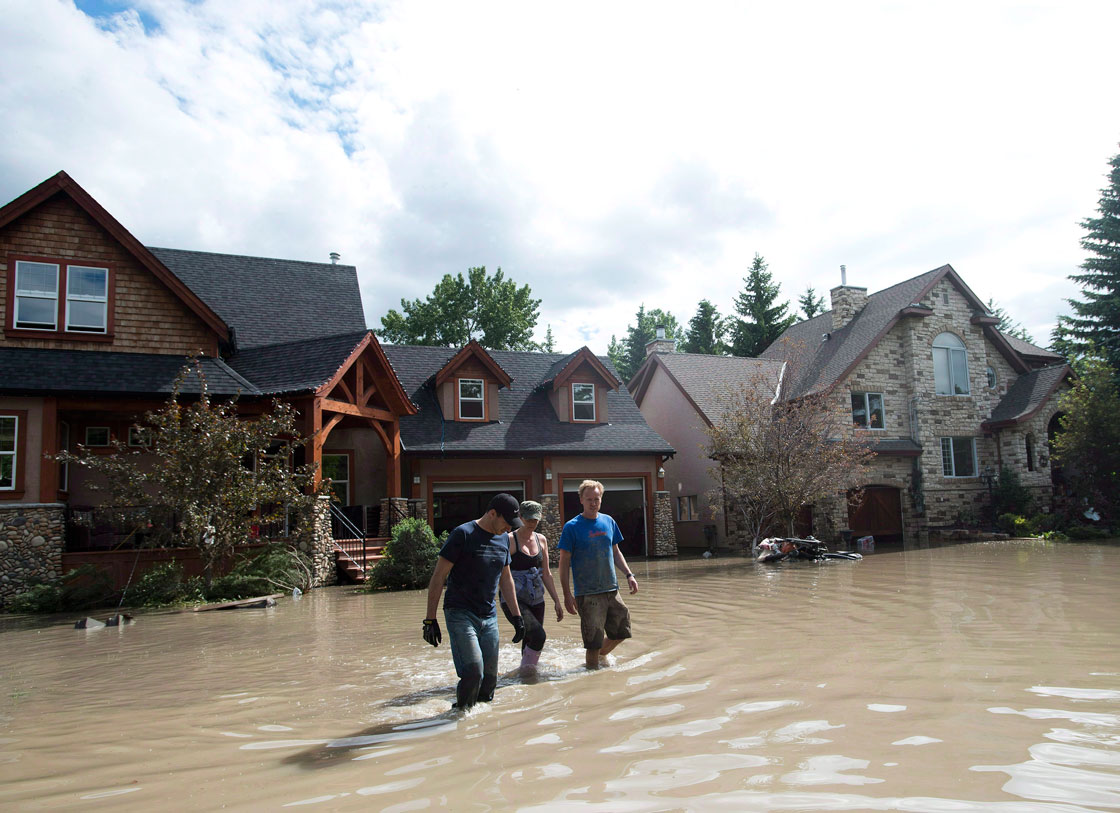A picture of the financial toll from storms that swept violently across Southern Alberta and the Greater Toronto Area this summer is emerging, at least in part, and it looks like the final cost will fall on home-owners in the form of higher premiums.

Insurance companies have said so far they expect to be on the hook for close to half a billion dollars in claims or write-offs, the latest of which was TD Bank, which said Tuesday its insurance arm expects a loss of at least $125 million related to the two weather events.
The mounting losses will almost certainly result in pressure on insurers to raise rates on home insurance premiums and seek regulatory approval to lift them on auto coverage, industry watchers and analysts say.
“Any time there’s a catastrophe that results in huge insurance claims invariably at some point in time it’s going to be downloaded to the consumer by way of premiums,” Nigel Kent, a lawyer and partner at Clark Wilson LLP specializing in insurance settlements, said.
Intact Financial Corp., the country’s largest property and casualty insurer, said last week it will take its own big write-down because of the storms spread across this quarter and the next.
Home insurers in Canada do not provide coverage for so-called overland flooding, or when water floods into a property through from overflowing streets and lawns. While that has saved companies a significant amount, many policies do cover sewer backup, which was pervasive across affected areas in southern Alberta and Ontario during each event, in late June and early July respectively.
Read more: Insurance companies brace for flood claims
Both TD and Intact will recoup some of the losses through reinsurance – basically insurance for insurance companies against excessive claims they’re unprepared for – but each is still left with substantial losses.
While auto insurance is regulated by provincial governments, home insurance is not, making it the first place insurers will look to adjust pricing upward, experts said.
TD, Intact and a third company, Co-operators General Insurance Co. are the first insurers to publicly disclose the amount of money they have lost or expect to lose because of the weather events. But analysts believe similar disclosures are coming from others.
“We expect that Royal Bank of Canada, Bank of Montreal and Canadian Western Bank will also record charges due to weather-related items,” Michael Goldberg at Desjardins Securities said in a note.
Read more: Insurance bureau warns flood claims will be high
Bank of Montreal issued a statement Tuesday saying that its insurance operations will not be affected by the flooding because it isn’t in the property and casualty business in Canada.
According to the Insurance Bureau of Canada, claims-related costs from catastrophes like floods and fires have risen sharply in recent years, fanning premium costs higher.
At the time of Intact’s disclosure on July 22, chief executive Charles Brindamour said the Toronto-based company “must adapt the protection offered to Canadians to ensure it remains sustainable in of the greater prevalence and severity of weather events.”
Also last week, Co-operators General Insurance Co. swung to a second-quarter loss of $5.9 million, mostly on costs from the floods in Alberta. The company said it lost around $77 million before taxes as a result of the Alberta floods after collecting reinsurance.
With a file from Canadian Press




Comments